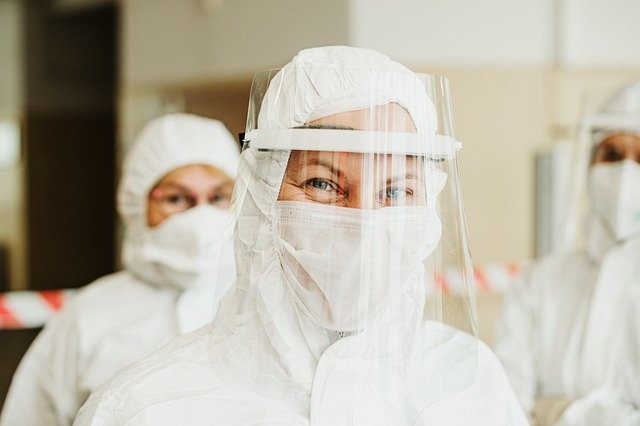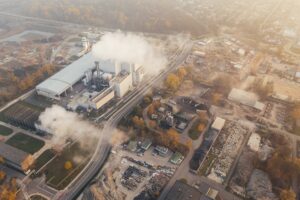
Every government operates differently when there’s a country-wide or state-wide emergency. In cases when a public health emergency strikes, it calls for an entirely different response plan.
The novel coronavirus outbreak took everyone by surprise nearly a year ago. Experts were aware of the possibility, or rather a probability, of a new epidemic or even a pandemic, but no one expected it to become a reality yet. That’s the thing about emergencies; They tend to occur when you least expect them.
Now, every government in the world has preparedness and response plans in place concerning various emergencies, including epidemics. But COVID-19 is something no one has seen before. So, when it hit, new public health emergency response plans had to be made.
Could politicians and other government officials handle public health emergency response measures on their own? Could they impose the right measures properly? Not without the necessary knowledge and expertise of professionals in the field, that is, medical experts and scientists.
And they haven’t. They turned to experts and started a major shift to technocracy.
What exactly is a technocracy?
A technocracy refers to a system of governance in which a group of technical experts is involved in decision-making in a society or an industry because they have the necessary technical or scientific backgrounds.
In the case of COVID-19, those are all the health experts that worldwide governments have selected to assist them in adjusting public health emergency response plans.
Their job is to inform the public about all the details concerning the virus, propose the right health and safety measures, and advise the public about following them correctly.
Those individuals appointed to crucial decision-making roles based on their skills and competence are known as technocrats.
And precisely because they have taken such leadership roles in our society, slowly becoming a technocracy.
Why is COVID-19 seemingly pushing us in that direction?
Many health experts in countries afflicted by COVID-19 have become household names in the past year. We see them all the time on TV, explaining various health and safety measures and policy decisions to the public.
They have taken center stage, with political leaders standing right behind them. At least, that’s how it is in most democratic countries.
Why is that? Because health experts don’t base their decisions on opinion. They base them on data and objective methodology.
And that’s exactly why the public trusts them. People trust their advice because they know it comes from legitimate sources. Therefore, they are far more likely to follow the measures and comply with any and all restrictions for reducing the further spread of the virus.
If politicians were to inform and advise the public about the virus without technocrats at the center of the response plans, many people might not take them seriously.
That’s simply because they generally find medical scientists and other health professionals more trustworthy, especially when it comes to health advice.
For instance, there are many COVID-19 cases with no symptoms. We couldn’t have known that without medical scientists. And they are the only people who can properly explain the symptoms and all the implications of COVID-19.
So, it makes perfect sense that they are at the forefront of our society right now.
Is a technocratic society necessarily bad?
A technocratic society doesn’t have to be bad. Every society needs technocrats, as long as it retains a good balance with various democratic operations.
In the wake of COVID-19, technocrats are helping us to a great extent. They are armed with facts, so we need them to inform us about the new coronavirus and tell us how to stay safe.
Without facts, we would be in an even more tragic situation right now. We would live every day blindfolded, hoping we don’t get sick without doing anything to prevent it.
However, the world is a much more complicated place that can’t be run on facts only. There are different norms and values we must follow – norms that are the cornerstone of policymaking.
The facts that health professionals provide are paramount for making policies in these unprecedented times, but democratic consultation should also play an important role.
We’ve seen how significant that is in terms of restrictions of the freedom of movement. If technocrats had the final say, every country, state, and the city would be on lockdown.
Sure, those that adopted drastic measures at the beginning of the pandemic have had better health outcomes.
But those measures have also led to permanently closed businesses, thousands of lost jobs, a lot of cases of exacerbated mental health, increased domestic violence, and even suicides.
So, apart from public health measures, governments need to take social, civil liberty, and economic factors into consideration.
That’s where politicians and other government officials step in. Only by bringing in democratic processes to draw clear lines between health and all these other factors can we deal with the crisis properly.
How would that change our daily lives?
People living in a technocratic society today would need to make some sacrifices. They wouldn’t live their lives the way they’re used to if we want to stay healthy as we ourselves have seen.
We need to sacrifice a bit of our freedom for the sake of our security, protect our health while also protecting the economy, and we need to find the right balance between consumerism and environmental protection.
If our society were to become fully technocratic, facts would dictate our daily lives. There would be no room for democracy. In fact, we would be living in a somewhat autocratic world, where an elite group of technical experts would dictate all the activities of the society or state.
That’s why democratic practices should balance any technocratic response.
Conclusion
Both democratic and non-democratic countries should use democratic processes to respond to the pandemic or any other public health crisis.
But they should also rely on the expertise and knowledge of technocrats. Technocratic responses are crucial to minimize miscommunication and improve public health. Still, political leaders should step in to strike a balance so that our society doesn’t turn into a full-on technocracy.
This article was submitted via email as an op-ed. It does not represent the opinions of the Enquirer 360.
The author does not belong to our editorial staff.



